 Want To Know How To Improve Reading Skills, Language Learners?
Want To Know How To Improve Reading Skills, Language Learners?
(You’re in the right place!)
I adore teaching languages and often my students ask me for suggestions on how to improve reading skills and develop their vocabulary. I like the question, since reading is one of the four main skills when learning a language and you’re always going to need words to communicate! I tell them to go and read whatever they can find and are interested in. This is supported by Nuttall who states that “an extensive reading programme…is the single most effective way of improving both vocabulary and reading skills in general” (1982, p.65) One of the ways that students can improve their reading skills is the notion of ‘learning to read by reading’ (1985, p.88). However, there are also a few tips that language learners can implement to stick with the process and actually make progress in language learning. Read on to find out more!
 Why Listen To Me?
Why Listen To Me?
10+ Years of Teaching Experience – Currently, I teach ESOL Level 1 (A2/B1 level) and Level 2 (B2 level) reading courses. Additionally, I work with GCSE German and GCSE French learners on how to improve their reading skills needed for GCSE German and GCSE French examinations (A2 level). Reading counts for 25% of their overall grade. I also teach A-Level German and reading is equally an important component in these exams. So, as you can see, I have a lot of experience in helping language learners to improve reading skills. Over my ten year teaching career, I have picked up a few tricks which have helped my students to pass their ESOL reading examinations with a 99% pass-rate.
Life-Long Language Learner – In addition to my reading teaching experience, I am also a life-long language learner. When I was a child, I learnt Gujarati fluently. I was born in England and so I am fluent in English. In addition, I am proficient in German and French and an A2 level Spanish. I can also read Arabic fluently. I know that reading has definitely contributed to my levels of proficiency, especially by increasing my lexical knowledge. This was also accepted in a study carried out by Saragi et al. (1978) which showed that “extensive reading results in a substantial amount of vocabulary learning”. Although this study doesn’t classify what counts as “extensive reading”, it does acknowledge reading different texts for pleasure. As well as improving my lexis, I also believe that extensive reading has had a positive effect on my ability to decode grammar rules.
Now that’s out of the way, take note of the tips below to help you to read more extensively and learn how to improve your reading skills today!
 TIP 1 – Define The Reasons For Reading
TIP 1 – Define The Reasons For Reading
First of all, you need to ensure that you understand the reason that you are reading and define it.
There are so many reasons that you could be reading for when learning a language, so ensure you understand these reasons. Are you reading for pleasure, for an exam, to develop your vocabulary or do you want to become fluent?
KEY TAKE-AWAY: Once you have defined your reasons for reading, you can work on putting your focus in that direction. Sometimes people get bored of reading, because they don’t understand why they do it. Knowing the ‘why?’ will help you focus on a goal. Then, you need to figure out what you can read to achieve that goal…
 TIP 2 – What Can You Read?
TIP 2 – What Can You Read?
In the 21st Century, we are so lucky to have so much reading material at our fingertips and so much variety when it comes to choosing what to read. We have reading materials all around us: advertisements on the Tube, road signs, posters in shop windows and leaflets on noticeboards. What’s more is that most people are inundated with text in their digital lives, such as on: YouTube / Facebook / Instagram posts and comments, tweets, blogs and websites about everything etc. There are also plenty of traditional options when it comes to reading too: books, magazines, newspapers and articles, novels, short stories, travel brochures, dictionaries, recipes, poetry etc. It’s going to be quite difficult to commit to reading all of these, so choose your top three and start with those.
KEY TAKE-AWAY: The point here is with so much reading material, to improve your reading skills, choose something you will enjoy and/or that relates to your level and goal for reading.
Things To Read for Pleasure
Some reading suggestions for pleasure: books, poems, short stories, novels, blogs, magazines, newspapers for traditional forms of text. If you’d prefer to read on a device, then take a look at the news on search engines, such as Yahoo or download a newspaper app (such as The Times or The Telegraph, or equivalents in other languages):
https://www.yahoo.com (English)
https://fr.yahoo.com (French)
https://de.yahoo.com/ (German)
If you’re interested in celebrity news (gossip!), then I’d recommend these websites:
- http://www.fan2.fr/ (French)
- http://www.ok-magazin.de/ (German)
- http://www.pudelek.pl/ (Polish)
Similarly, if you like to read humorous things, such as memes, then you might also enjoy the following humorous sites:
- http://9blague.com/ (French)
- http://echtlustig.com/ (German)
- http://www.graciosasimagenes.com/ (Spanish)
- http://imagenesgraciosas.es/ (Spanish)
Things To Read for An Exam
For an exam, you could go through past papers and read the texts contained in them. Completing the activities at the same time should also develop your comprehension skills simultaneously.
You may wish to read current newspaper articles, blogs from people who have sat a similar exam or information websites from the exam boards. You could also read books, e-books or magazines targeted at your level. For example, for ESOL Level 1 students, I recommend books at an A2 or B1 level of English, as well as newspapers like The Sun and local newspapers too. For my ESOL Level 2 students, I would recommend newspapers, such as: The Times or The Telegraph. GCSE German students and GCSE French students, might enjoy watching videos with subtitles, related to exam themes, as well as short stories and past papers to help with exam vocabulary and topics.
 TIP 3 – Schedule Reading Into Your Daily Life
TIP 3 – Schedule Reading Into Your Daily Life
You now have a reason for reading and you know what you’re going to read. It’s time for you to schedule it in. If you don’t, other things will take priority and you won’t improve. Remember that wise saying: ‘practice makes perfect’? Well, it’s true! If you don’t practise regularly, you won’t see much progress. Little and often works really well.
If you want to make reading even more fun, why not try to read a page in your favourite celebrity’s accent, or in accents from around the world? It sounds like a strange thing to do and it might not work for everyone, but worth a try?!
KEY TAKE-AWAY: What’s a reasonable amount of time that you can commit to daily or every other day? 10 minutes, 20 minutes? That’s fine. Don’t over-commit, but you do have to commit to something. By all means, read for longer if you can on the odd occasion. However, make sure you don’t go under your allotted time and ‘keep it regular’!
TIP 4 – Interact With The Text
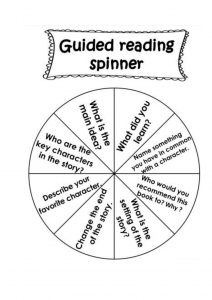 Yes, I mean talk to the text! Why and how? Well, you can read, but that doesn’t mean that you’ve actually taken anything in. So, to ensure you have understood what you’ve read, you could do a number of things.
Yes, I mean talk to the text! Why and how? Well, you can read, but that doesn’t mean that you’ve actually taken anything in. So, to ensure you have understood what you’ve read, you could do a number of things.
Keeping in mind that you’ve picked some form of text that is close to your level, try out one or all of the following suggestions to mix things up and ensure you are understanding what you are reading, rather than just reading and not taking much in.
1. Read at Speed and Create a Vocabulary Journal
Read with a pen or highlighter running across the text at a steady speed. Underline or highlight new words as you read. Then, after you have finished reading for the day day, write these new words down in a vocabulary journal (either a physical book or on your phone). Look up the meaning of the vocabulary and write them down in one go. Next time, read the same pages once again, but at a much quicker speed. Did you understand it better? If not, look back at your vocabulary journal. Otherwise, continue reading the newer text at a steady pace again and repeat the aforementioned activity.
2. Summarise
Depending on your level and the length of the reading material, summarise each paragraph, each page or each chapter. This will allow you to ensure that you have digested what is happening and you can then communicate it (allowing you to use level-related vocabulary, thus developing fluency). Sometimes people find it hard to summarise, so give yourself a word-limit. For example: if you read a paragraph of 50 words, summarise it in 10 words; a page of 150 words, summarise in 20 words and if you’ve read a chapter, try 30-40 words.
3. Ask Yourself Questions
Note down a few questions to ask yourself before you start reading. If you are a beginner, things like: ‘who is the main character in this section?’ or ‘what is their main activity on this page?’ For more advanced learners, ask comprehension questions, such as: ‘what it the author trying to portray in this chapter?’ or ‘what effect does this paragraph have on me as a reader?’ If you have some questions that you can ask yourself as you read, you will show that you have picked up and understood key elements.
4. Delete Irrelevant Information
If you have a physical text in front of you, gently delete irrelevant information. You can do this with a pencil. This is a skill that will allow you to choose the necessary detail required to convey the message, but at the same time, you will be able to sift out unnecessary details.
If you are a language teacher (or a student!) and want some other suggestions of reading activities to develop your reading and improve your reading skills, take a look at my 21 Must-Use Reading Activities for Language Lessons
So, there you have it, 4 awesome tips to help you to improve your reading skills!
FINAL THOUGHTS ON HOW TO IMPROVE YOUR READING SKILLS
Extensive reading has been proven to improve grammar, receptive vocabulary and improve your language skills. Take note of the 4 easy tips on how to improve your reading skills, language learners! This should help you to be more successful in your language learning journey.
1. Understand and define why you are reading.
2. Understand what you enjoy reading based on your goal and read that
3. Schedule in and stick to reading regularly for a set amount of time daily or every other day.
4. Interact with the text, to ensure you have understood what you are reading.
Happy reading!
Did you enjoy this post, designed to help you learn how to improve reading skills, language learners / teachers? If so, be sure to check out these posts to improve language acquisition here too:
Last Man Standing – Vocabulary Building Activity for the Classroom
 Want to keep up-to-date with the latest content? Sign Up to the Ideal Teacher’s Exclusive Mailing List.
Want to keep up-to-date with the latest content? Sign Up to the Ideal Teacher’s Exclusive Mailing List.
References:
Nuttall, C. (1982) Teaching Reading Skills in a Foreign Language. London: Heinemann Education
Smith, F., (1985) Reading without Nonsense. 2nd Edition. New York: Teachers’ College Press
JOIN ME ON MY SOCIALS FOR MORE FAB TEACHING CONTENT >>
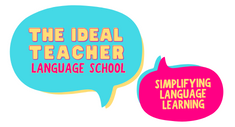
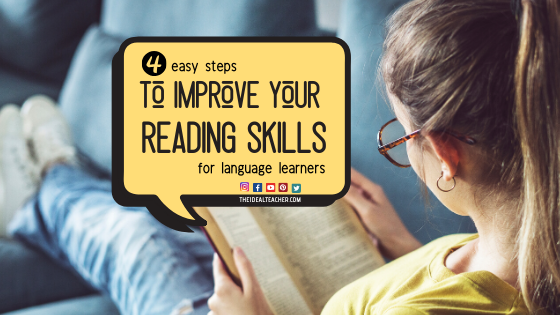
 Want To Know How To Improve Reading Skills, Language Learners?
Want To Know How To Improve Reading Skills, Language Learners?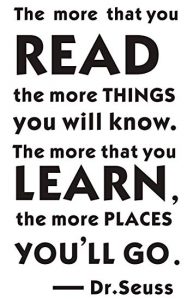 Why Listen To Me?
Why Listen To Me?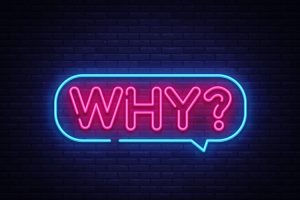 TIP 1 – Define The Reasons For Reading
TIP 1 – Define The Reasons For Reading TIP 2 – What Can You Read?
TIP 2 – What Can You Read?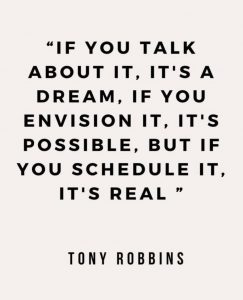 TIP 3 – Schedule Reading Into Your Daily Life
TIP 3 – Schedule Reading Into Your Daily Life


